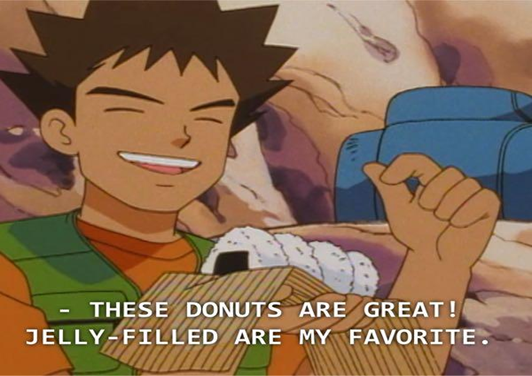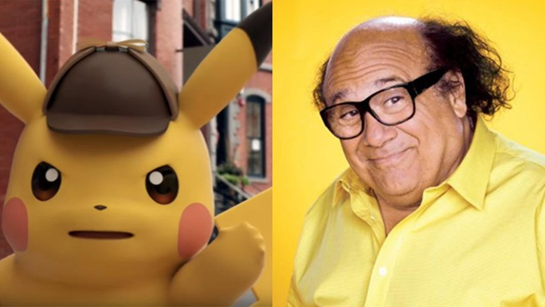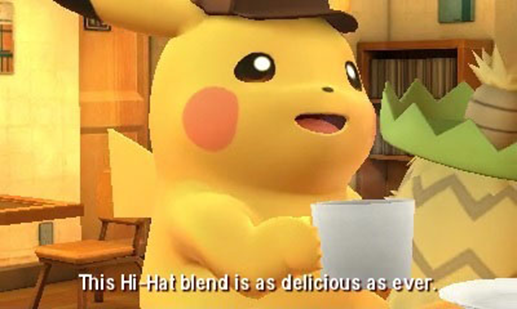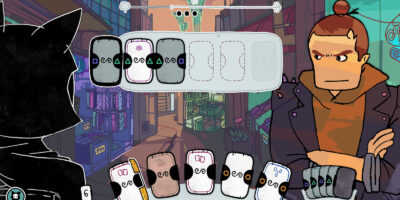This article previously appeared on Crossfader
It doesn’t take much effort to remember how widespread the Pokémon craze was some 20-odd years ago. In fact, it’s practically been ingrained in our collective consciousness just how much buzz this international phenomenon had produced. Within two years of their debut, the original games gained massive commercial acclaim in the States, and from there quickly opened the floodgates for Pokémania: the anime series, spin-offs, manga adaptations, trading cards, and merchandise out the wazoo. And we all ate it up.
However, Pokémon during the 1990s was more than just an inescapable fad for youth culture. It also became how droves of young people interacted with each other: connecting Gameboys to battle via cables that were way too short, showing off and trading the cards with your friends because no one knew how the Hell to play the game, bonding over who could sing the inanely-catchy theme song or the PokéRap the best. Even now there exists some semblance of that initial outbreak of Pokémania, with droves of devoted fans swearing by their favorite generation and singing its praises to others within their niche.

It was a different time
Now look at today. Ever since the flash in the pan that was Pokémon GO, the IP has exploded back into the fray, rising from the doldrums of the early aughts and breaking their shackles of creative stagnation. The mainstay series has found its second wind and is the strongest-selling series on the 3DS, with all four pairs of games since X and Y boasting immense, active communities in both the competitive and casual scenes. And it’s not just video games: Pokémon has branched its way into other markets, with themed restaurants, stores devoted to Pokémon memorabilia, and National Pokémon Championships.
But just as Pokémon’s reach has expanded, so too has the idea of Pokémon itself. Nintendo has loosened its pearl-clutching attitude over this entrenched franchise, and for the first time in decades has put its trust in the hands of outsiders. This has manifested with the brand taking some uncharacteristic risks, such as with the 3D fighting game POKKÉN TOURNAMENT developed by Bandai Namco. Hell, the public interest in Pokémon-related projects has gotten so high that we are even getting a high-budget, live-action movie produced by Legendary slated for release next year. The question we’re left with, then, is whether this is just a resurgence in what was once popular, or a rebirth? And if it is a rebirth, what distinguishes this PokéRenaissance?

Unfortunately, it has nothing to do with Hawaiian cuisine
Before we begin, I would be remiss to underscore the stake GO had in reaffirming the IP’s image in the public consciousness, or how the app attracted as many as it did by invoking a heavy sense of nostalgia. However, what I feel worked even better for GO, as well as worked towards realizing this PokéRenaissance, was its focus towards greater interaction between users. Effectively, certain social aspects were brought to light with that focus, augmenting the IP’s approach and helping the brand evolve. Through the integration of broader audiences and a greater emphasis on the framing of the game world, GO explored Pokémon in a different light. For the first time, our world and the world of Pokémon were one and the same, and this was all achieved without losing the property’s childlike charm.
It is with that in mind that we delve into the IP’s unorthodox new exemplar, DETECTIVE PIKACHU. The game centers around Tim Goodman, a young man who travels to Ryme City in an attempt to find clues regarding his missing cop father. Within minutes of walking the streets, the young man is met by the eponymous Detective Pikachu: a gruff gumshoe of a Pokémon who, for reasons unknown, can only be understood by Tim. Taking advantage of the odd linguistic connection they share, the duo join forces to investigate suspicious occurrences around Ryme City, solve crimes, and attempt to crack the case of the missing Detective Goodman. Puzzle solving and Pokémon-based hijinks ensue.

Tears for what could have been
There’s a surprising amount to unpack with DETECTIVE PIKACHU. Despite the game’s highly tangential nature from the rest of the series, it’s probably the closest the IP has ever come to making players feel like a part of its universe. The title’s decision to work as a sort of kid-friendly take on decidedly mature genre of storytelling, as well utilizing old school point-and-click design, also helps net it a more varied audience in addition to its intended demographic. But what’s most telling about DETECTIVE PIKACHU is how it willingly foregoes its combat-based roots, opting instead for a very character-driven affair with the eponymous Pikachu taking center stage. And while the story certainly has its place and is filled with enough little twists to keep it entertaining, it is the interactions between the characters and their world that give the game its significance.
The message this new phase of Pokémon pushes very vehemently is the relationships (and similarity) between us and Pokémon. The way in which DETECTIVE PIKACHU presents itself supports this notion, effectively building off some of the foundations established in modern installments like Pokémon SUN and MOON. To find the conduit for this reinterpretation, one need only look at the titular electric rodent himself. Far from being the typical interpretation of the cuddly mascot, Detective Pikachu is a font of personality: deep-voiced, brash, and a snarky little flirt that practically steals the show every chance he gets. His infectious demeanor acts not only as a means of comic relief, but also sets the stage for the rest of the Pokémon who appear throughout the game.

Nothing builds camaraderie like cheap, shitty coffee
Detective Pikachu’s ultimate utility is granting the player the ability to communicate with other Pokémon, effectively making him the mouthpiece for the non-human cast. Each creature the duo encounter display strong, defined personalities (more so than most of their human counterparts), and shed light onto their lives and functionality within the world of humans. This is the crux of Pokémon’s new direction. While communicating with these eccentric creatures may not really be grounded in any more reality than previous installments, giving more of a figurative (and literal) voice to the creatures the series is named after gives the feeling of the world more weight, fleshing out the property in a big way.
Pikachu’s new groove shows that Nintendo and The Pokémon Company now feel the IP should be just as much about how Pokémon affect us as we affect them. It reminds us that the creatures that inhabit the world aren’t just a commodity to be pushed on the youth, but also a powerful influence on our culture. As such, displaying just how much they share with the player brings us playing it a greater sense of connection, both to the world of the game and the world that it created.
As hokey as it sounds, connection really is what distinguishes this renewed passion in the Pokémon brand as a PokéRenaissance. Where the Pokémania of the 1990s sustained itself on the catchphrase of “Gotta Catch ‘Em All!” and embraced its commoditification because it’s all the brand had to be, this new direction Pokémon is headed realizes the scope of its social influence. By displaying this understanding and allowing personality and relationships to define their new image rather than sheer numbers or marketability, Pokémon shows to itself and others that it can continue to push towards bigger and better things. And honestly, I’m excited for what comes next.
DETECTIVE PIKACHU is available on the Nintendo 3DS
















Comments